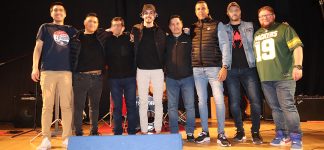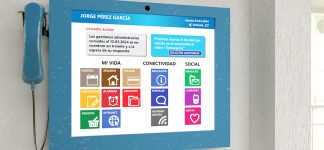
Atenea Foundation is an organization with over 38 years of experience dedicated to intervening with vulnerable groups. Part of their commitment to the community is reflected in their focus on psychosocial support for drug-dependent individuals in prison environments.
In prison, the issue of addiction is addressed from a comprehensive perspective, focused on harm reduction, relapse prevention, and the process of change towards overcoming drug dependency. Prioritizing the promotion of healthy habits, preparation for social and work reintegration, the organization works hand in hand with individuals, recognizing their dignity and enhancing their capabilities.
Creativity and innovation are fundamental values in the identity of Atenea Foundation, encouraging its professionals to leverage their strengths to continuously improve the quality of their intervention. The Anger Regulation activity, led by Patricia, a Doctor in clinical psychology and worker of Atenea Foundation, is an example of this, having found a great ally in the direction of the Soto del Real Center.
Why boxing and not another sport?
Boxing captures their attention, resonating with many survivors and there are quite a few here. People imagine boxing as a fight, but it is a complex sport with a lot of therapeutic potential. Mastering the technique involves a much closer connection with our own body than we are used to. Working on speed and power, coordination, adapting to the other, etc. opens up a world of possibilities when it comes to connecting with ourselves and others.
Many are especially intrigued by sparring (combat), without having acquired the minimum skills for it, because receiving blows also connects us with ourselves, is another way to escape emotional pain and can hook us, like putting ourselves at risk.
When the program participants say they want to hit each other, I tell them it’s a good exercise to put into practice what they are learning, but it’s not the place. I love this sport and have been practicing it for many years, but I am not a teacher nor does this activity have that purpose, although we use techniques and practices to learn to counterattack the partner.
Here we touch contact when we hit the hands, exchange blows or hit below when the other is covered, we connect in a more subtle way, stepping on that line but not crossing it, and seeking for those defenses that are held up high, to be dismantled, from the emotional aspect, like the layers of an onion. But it’s great that this interest arises, because one of the objectives is that during permits they go to the resource to which we are linked to train and that, upon release, this sport can become part of their lives. Among the dynamics, it is also surprising how the sessions are ended by meditating, to connect from a more internal and personal place, all together in the same space but, this time, without physical contact among them.


